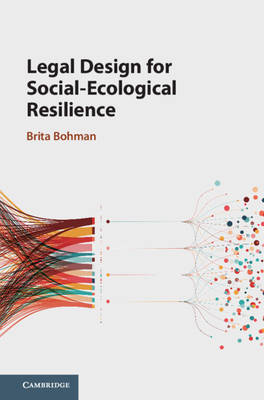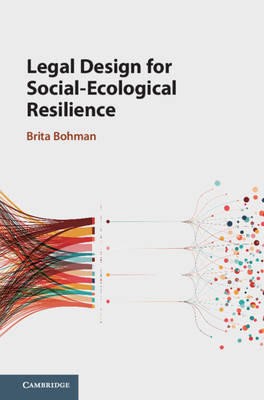
- Afhalen na 1 uur in een winkel met voorraad
- Gratis thuislevering in België vanaf € 30
- Ruim aanbod met 7 miljoen producten
- Afhalen na 1 uur in een winkel met voorraad
- Gratis thuislevering in België vanaf € 30
- Ruim aanbod met 7 miljoen producten
Zoeken
Omschrijving
Theories of social-ecological resilience have developed over the past decades and rapidly become an important framework for governance of complex non-linear environmental problems. This book explores the resilience theories and their compatibility with law, it identifies corresponding legal features. The legal features identified, including legal measures, mechanisms, principles and approaches, form a legal design for social-ecological resilience. A legal design that can be applied to different governance situations. It can be a tool both for designing new laws, as well as for assessing the effectiveness of current laws and legal systems. In many ways environmental law has adjusted and developed new approaches to meet complex environmental problems, but law is still challenged by the complexity that characterize environmental problems and the environmental change connected with the Anthropocene. This book provides a comprehensive review of the most fundamental components of the governance framework for social-ecological resilience and the role of law.
Specificaties
Betrokkenen
- Auteur(s):
- Uitgeverij:
Inhoud
- Aantal bladzijden:
- 264
- Taal:
- Engels
Eigenschappen
- Productcode (EAN):
- 9781108840170
- Verschijningsdatum:
- 18/03/2021
- Uitvoering:
- Hardcover
- Formaat:
- Genaaid
- Afmetingen:
- 152 mm x 229 mm
- Gewicht:
- 508 g

Alleen bij Standaard Boekhandel
+ 397 punten op je klantenkaart van Standaard Boekhandel
Beoordelingen
We publiceren alleen reviews die voldoen aan de voorwaarden voor reviews. Bekijk onze voorwaarden voor reviews.











